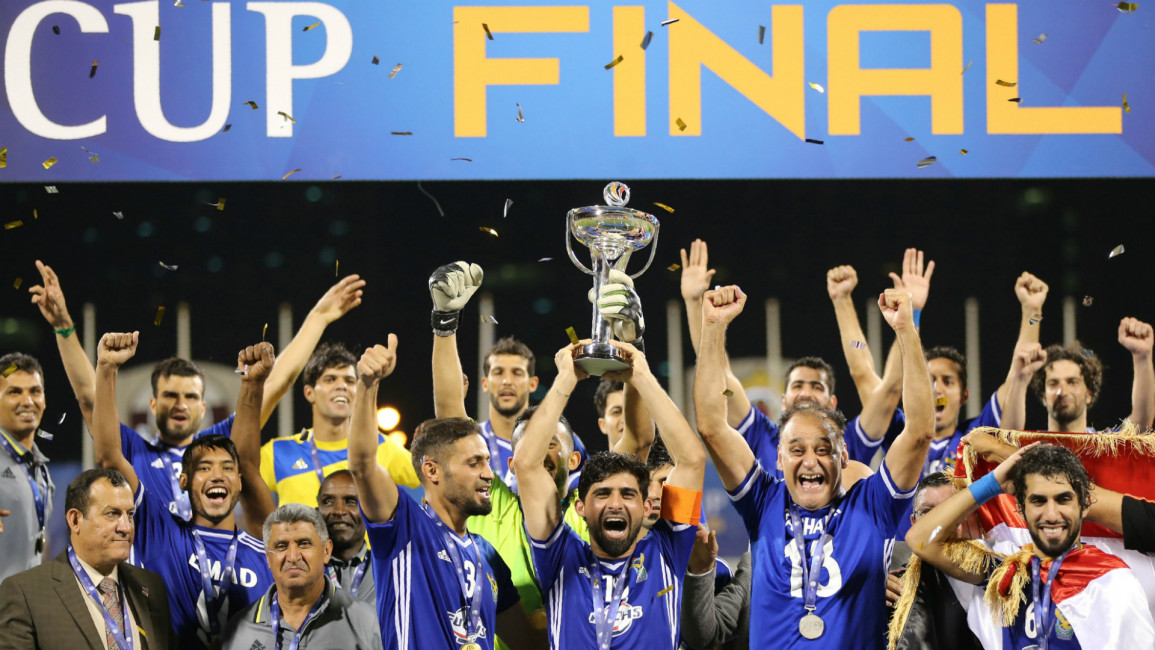
Baghdad football club makes history with AFC title win
Baghdad’s al-Quwa al-Jawiya [Air Force] football club has become the first Iraqi team to win the Asian Football Confederation Cup [AFC] after securing a 1-0 victory over India’s JSW Bengaluru in Doha on Saturday, at a time when Iraq experiences some of its darkest, most uncertain days with fighting currently engulfing Mosul.
The only goal of the game was scored by al-Jawiya striker Hammadi “Hitman” Ahmed from close-range after 70 minutes.
It was a good day for Ahmed who was also voted the tournament’s most valuable player and top scorer having hit the back of the net 16 times in just 11 games over the course of this year’s competition.
Victory by no means came easily to Iraq’s oldest club, which had to cope without Humam Tareq for more than 60 minutes after the influential playmaker was injured halfway through the first half.
Both sides had presentable chances before Ahmed struck in the second half to break Bengaluru hearts, while Bengaluru also spurned a couple of final chances at the death, notably when CK Vineeth failed to connect with a Cameron Watson free-kick in the 89th minute.
Al-Jawiya, nicknamed al-Saqour (The Falcons) were the second ever Iraqi team to reach the AFC final after Arbil finished runners-up in both 2012 and 2014.
Speaking after the match, al-Jawiya coach Basim Qasim hailed the victory as “important not just for the fans of Air Force Club but also for the people of Iraq”.
Victory comes at a time when both Iraqi army and Kurdish Peshmerga troops, backed by a coalition of international states led by the United States, are engaged in an assault on the Islamic State controlled city of Mosul in Ninevah province.
Since taking Mosul in June 2014 the extremist group’s brutal killing campaigns and repressions of civil and religious liberties in areas under its control have scarred Iraq, exacerbating sectarian tensions.



